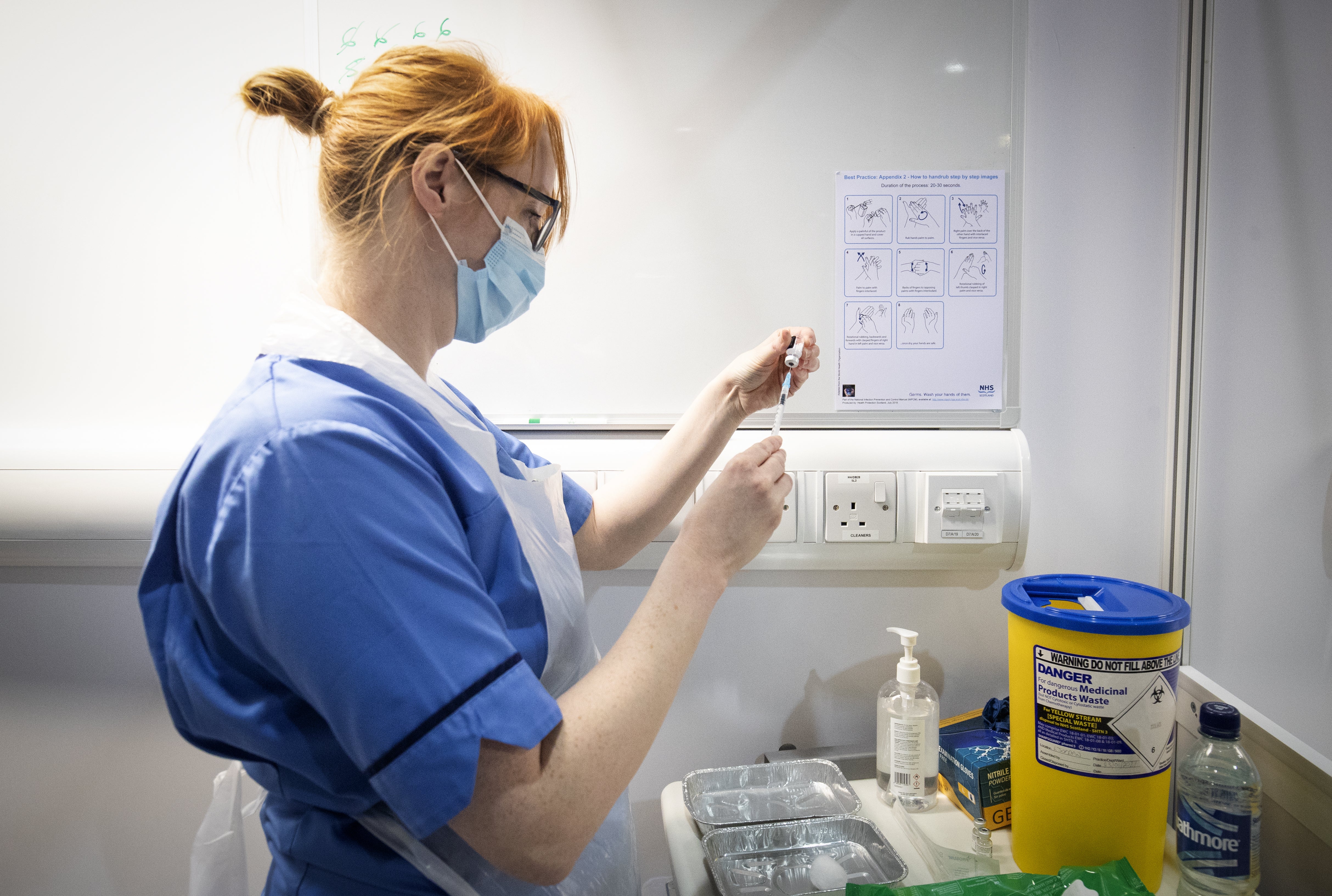Omicron: What do we know about the new Covid-19 variant?
Scientists around the world are concerned.

Your support helps us to tell the story
From reproductive rights to climate change to Big Tech, The Independent is on the ground when the story is developing. Whether it's investigating the financials of Elon Musk's pro-Trump PAC or producing our latest documentary, 'The A Word', which shines a light on the American women fighting for reproductive rights, we know how important it is to parse out the facts from the messaging.
At such a critical moment in US history, we need reporters on the ground. Your donation allows us to keep sending journalists to speak to both sides of the story.
The Independent is trusted by Americans across the entire political spectrum. And unlike many other quality news outlets, we choose not to lock Americans out of our reporting and analysis with paywalls. We believe quality journalism should be available to everyone, paid for by those who can afford it.
Your support makes all the difference.The next three weeks are going to be weeks of “scientific uncertainty” when it comes to the new Omicron variant, according to England’s deputy chief medical officer Professor Jonathan Van-Tam.
As the world waits for the “mist to clear”, Prof Van-Tam said there is “no time to delay” as it was announced that millions more in the UK will become eligible for a Covid-19 booster vaccine.
Scientists have said they are concerned about the Omicron variant – also known as B.1.1.529 – as it has about 30 different mutations, double the number of the Delta variant.
So what do we know and how is the UK reacting to concerns about Omicron?
– When did Omicron first appear?
UK scientists became aware of the new strain on November 23, after samples were uploaded to a coronavirus variant tracking website from South Africa, Hong Kong and then Botswana.
Cases of the Omicron variant have since been confirmed in a number of countries including England Scotland, Israel, Belgium, Austria, the Czech Republic, Denmark, Germany, Italy, the Netherlands and Portugal.
– How many cases have been confirmed in the UK?
There are 11 confirmed cases of Omicron in the UK, as of Monday, a number expected to rise.
Health Secretary Sajid Javid told the House of Commons that five cases of the Omicron variant have been confirmed in England and six in Scotland.
“We expect cases to rise over the coming days,” he said.
– What are the concerns about Omicron and when will we know if they are well-founded?
There are concerns around transmissibility, severity of illness and vaccine efficacy.
Prof Van-Tam said scientists around the world agree that the Omicron variant is “of increased concern”.
He said there are still uncertainties about how transmissible the variant is and its impact on severity of disease.
He said the “number of mutations present, already on first principle, makes us worry about a possible effect on vaccine effectiveness”.
He made clear that there “are far more things we don’t know yet, than things we do know” about the variant, but that he expects more to become clear in three weeks.
– What is happening in the UK as scientists work to find out more about Omicron?
The Joint Committee on Vaccination and Immunisation (JCVI) is now advising that all adults aged 18 to 39 should be offered a Covid-19 booster dose, in order of descending age groups, to increase their level of protection.
Early evidence suggests that higher antibody levels may give better protection against the variant.
Booster doses should be given no sooner than three months after people have had their second dose of an original vaccine – shaving three months off the current six-month wait.
Meanwhile, young people aged 12 to 15 should be offered a second dose of the Pfizer/BioNTech Covid-19 vaccine, no sooner than 12 weeks after their first dose.
– Have any new measures been introduced in the UK?
In England, the wearing of face masks will be compulsory in shops and on public transport from Tuesday, while PCR tests will be brought back in for all travellers into the UK.
Face masks are being recommended in communal areas of England’s secondary schools and colleges, but teaching unions are calling for tougher measures to be implemented to stop the spread of the virus.
Scotland’s First Minister Nicola Sturgeon and Wales’s First Minister, Mark Drakeford, have called for urgent talks with the Prime Minister over the new variant, and demanded that a tougher four-nations approach is adopted.
Downing Street rejected calls from Ms Sturgeon and Mr Drakeford for the self-isolation period for travellers to be extended until the result of a test on day eight after arriving in the UK.
Extending the requirements would have a “detrimental effect” on the travel industry, No 10 said.
Scotland, Wales and Northern Ireland have all implemented travel rules for non-red list arrivals.
– What about working from home?
England is the only UK nation where working from home is not encouraged.
Scotland’s First Minister Nicola Sturgeon reminded people on Monday to “work from home if possible”.
The advice is the same in Northern Ireland, and working from home is encouraged under current guidance in Wales.
On Monday the Prime Minister’s spokesman said it was up to employers to decide on the “right balance” for them, when it came to whether staff worked from home or the office.
Jurisdiction over coronavirus restrictions is devolved, meaning Prime Minister Boris Johnson’s policies apply to England, and may differ from the rules elsewhere in the UK.